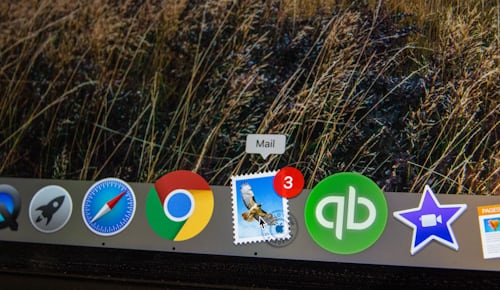
Email
has transformed the world of work over the past three decades.
It has changed it for the better, in creating a simple way to connect with
colleagues, customers and partners around the globe with ease and convenience.
But it has also brought significant challenges and companies and employees
around the world continue to grapple with finding the right balance for email
etiquette.
Restrictions on email usage are becoming increasingly prevalent. Volkswagen
were an early adopter, configuring servers so emails are only sent to
employees’ phones half an hour before the start and after the end of the
working day and not during weekends.
Daimler also introduced a policy that switches off employee access to emails during holidays while last year Lidl bosses in Belgium banned all internal email traffic between 6pm and 7am the following day to help staff clear their minds and enjoy their time off.
While many of these restrictions have been set in good faith to help ease work pressures, in fact they could also be increasing the stress and discomfort experienced by some employees.
My research indicates that one-size-fits-all policies for dealing with email rarely have benefits for all workers.
This is because, when people deal with work email, my research has found that they are not all prioritising the same goals. Some people are concerned with showing ‘Concern’ to others, others are interested in prioritising ‘Well-being’. Some people are focused on achieving ‘Work’ goals, and others are concerned about maintaining ‘Control’. So, while blankets bans could help some workers to achieve certain goals, they can also impede other employees from achieving theirs.
Depending on an employees’ personality my research found that the four goals above will be valued differently by each individual. We deal with email differently depending on the goals that we are prioritising, and we tend to prioritise goals that fit with our personality.
For example, more conscientious people are likely to strive towards Work goals because they are interested in producing good work, but more agreeable people are likely to strive towards Concern goals, because they are interested in getting along with other people.
Even then, workers with similar personality traits and goal concerns can respond in contrasting ways. A very agreeable person will prioritise goals to show concern to others, but that might may mean they respond more quickly to work email or take longer as they deliberate over the language and tone of an email.
To meet their goals, workers might need to be flexible on when and how they use email to work; especially if they are working collaboratively or globally with colleagues and external partners. Blanket bans take away that flexibility.
As well as clear goal setting, another interesting finding was that some people develop shortcut email ‘habits’ that allow them to respond to email fairly automatically, whilst also striving towards their goals.
However, people with higher levels of neuroticism (i.e. those who are more stress-prone and anxious), tend not to develop these shortcuts and habits, meaning that each time they deal with email, they are engaging in conscious thought and using more resources to cope with their email demands.
This may be why some people find work email to be especially draining, and indicate that these people may need extra help with learning how to deal with work email effectively.
Company-wide email policies, such as restricting access outside of working hours, providing quick response-time expectations, or banning internal email, assume that email is a problem that needs to be solved, and that there is a ‘one-size-fits-all’ resolution for all employees.
Yet, we know that the actions people use to deal with work-email are idiosyncratic, with both positive and negative repercussions for work and well-being.
Organizations concerned about this issue could try to personalise work-email action recommendations according to the different goals that different people value. Including workers in shaping advice is likely to ensure that no one set of goals is likely to be overlooked.
This is important because currently, even the best intended of policy solutions designed to optimise well-being, such as instructing all employees to switch off their emails outside of work hours to avoid being stressed, would be unlikely to be welcomed by employees who prioritise work performance goals and who would prefer to attend to work outside of hours if it helps them get their tasks completed.
People need to deal with email in the way that suits their personality and their goal priorities in order to feel like they are adequately managing their workload.
So evidence-based solutions, tailor-made to match the different goals that different people value, that are not prohibitively expensive or complicated, need to be developed to ensure that email continues to be a tool for productivity and not distraction and anxiety.
See our paper in Computers in Human Behavior for more: https://authors.elsevier.com/a/1Zphg2f~UW8ZnG
Image courtesy of https://webaroo.com.au/

